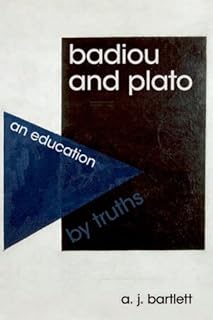Works Reviewed: Yoram Hazony, The Philosophy of Hebrew Scripture, Cambridge: Cambridge University Press, 2012, 379 pages.
"Philosophy is useless, theology is worse." There are times when this warning from the Dire Straits resounds, not prophetically, but with the banal levity of a jingle. Stuck in within the mess of neurons we once called our minds tirelessly forbidding thought or belief. It isn't a heavy nihilism though, more of a cliche than anything else. And, no doubt because there is no one else to do it, the theologians and philosophers continue to pursue their subtle movements, never quite sure whether it is a dance or a boxing match. This is done, often enough, with an eye to utility that translates philosophy into political philosophy and theology into political theology.
Politics names only one of the possible connecting points for theology and philosophy. To another we might well give the name religion, and by this we are to understand the questions that arise when approaching questions of ethics, epistemology, and being from a particular confessional tradition. Religion generally conveys the conception of deeply ingrained set of beliefs and mental practices that traverses the psyche of the individual to a much deeper level than that typically associated with politics. From a certain perspective these beliefs and practices are viewed as errant and illegitimate methods of knowing. Religion, then, becomes something opposed to the exercise of human reason and the texts associated with religion are rendered suspect. Particularly when the texts in question are portrayed as originating in a supernatural or revelatory manner.
Or so the story goes. In The Philosophy of Hebrew Scripture Yoram Hazony makes the case that the reason/revelation dichotomy has been used to marginalize the Hebrew Bible and render it obscure to the modern reader. He identifies a typology that divides literature into the camps of reason and revelation, where reason is generally associated with philosophical texts written by people like Plato or Thomas Hobbes, while the Bible is firmly counted in the revelation camp as an example of a miraculous knowledge that is to be believed on faith alone. Hazony argues against this reading, arguing that it is a view of the Hebrew Bible forged by the early Christian readings of the texts as well as by anti-Semitic tendencies in the German Enlightenment that celebrated the advent of Greek thought and sought to exclude all things Jewish from the halls of learning. Noting that even Parmenides and Plato make appeals to gods and goddesses in their philosophies, he argues that the texts of the Hebrew Bible should not be banned as examples of the pursuit of human reason simply because they use phrases like "the Lord said." Hazony then goes on to outline how one might approach the Hebrew Bible as a work of reason, and draws out an ethics, political philosophy, and epistemology from its texts.
Politics names only one of the possible connecting points for theology and philosophy. To another we might well give the name religion, and by this we are to understand the questions that arise when approaching questions of ethics, epistemology, and being from a particular confessional tradition. Religion generally conveys the conception of deeply ingrained set of beliefs and mental practices that traverses the psyche of the individual to a much deeper level than that typically associated with politics. From a certain perspective these beliefs and practices are viewed as errant and illegitimate methods of knowing. Religion, then, becomes something opposed to the exercise of human reason and the texts associated with religion are rendered suspect. Particularly when the texts in question are portrayed as originating in a supernatural or revelatory manner.
Or so the story goes. In The Philosophy of Hebrew Scripture Yoram Hazony makes the case that the reason/revelation dichotomy has been used to marginalize the Hebrew Bible and render it obscure to the modern reader. He identifies a typology that divides literature into the camps of reason and revelation, where reason is generally associated with philosophical texts written by people like Plato or Thomas Hobbes, while the Bible is firmly counted in the revelation camp as an example of a miraculous knowledge that is to be believed on faith alone. Hazony argues against this reading, arguing that it is a view of the Hebrew Bible forged by the early Christian readings of the texts as well as by anti-Semitic tendencies in the German Enlightenment that celebrated the advent of Greek thought and sought to exclude all things Jewish from the halls of learning. Noting that even Parmenides and Plato make appeals to gods and goddesses in their philosophies, he argues that the texts of the Hebrew Bible should not be banned as examples of the pursuit of human reason simply because they use phrases like "the Lord said." Hazony then goes on to outline how one might approach the Hebrew Bible as a work of reason, and draws out an ethics, political philosophy, and epistemology from its texts.
